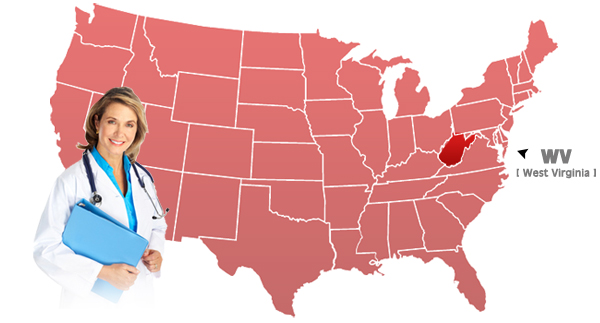If you are interested in becoming a phlebotomist, the state of West Virginia is the place to build your career. This state offers extensive training in this field. With the knowledge learned, phlebotomy students become highly skilled professionals.
These individuals learn about anatomy and physiology, venipuncture procedures and universal safety precautions. Successful completion of all coursework render these individuals as professionals in the field of phlebotomy.

As such, these graduating students earn a state recognized credential.
With a state recognized credential, these individuals are free to practice their professional skills in any industry that requires such services. The state of West Virginia does not require phlebotomists to obtain a license. As such, this state recognizes a school credential as sufficient for employment. Although the legal ramifications do not restrict phlebotomists from practicing, hiring officials do. This usually occurs when a phlebotomist has not received a national certification. In West Virginia, most employers will only hire those who have earned their certification. These employers believe that a national certification qualifies a phlebotomist as a professional in this field. Therefore, it is advisable that all technicians obtain this credential. In this state, phlebotomy technicians can contact the National Healthcareer Association (NHA) for further information.
Finding Schools in West Virginia
In the state of West Virginia, excellent phlebotomy programs are offered. At the end of a training program, students can earn a certificate, diploma or an associate’s degree. The credential earned depends on the institution and length of study. Phlebotomy certificate programs are the fastest way to enter this field as this course ranges from three to six weeks. Entrance through a diploma program will be slightly longer as it ranges from three to six months. The longest entrance period is 24 months. This is through an associate degree program.
[edu-search]west_virginia_p010101083215[/edu-search]
Blue Ridge Community College has a phlebotomy course that prepares students for success in this chosen field. As such, students take various phlebotomy courses that include laboratory skills and classroom learning. Upon completion, students are prepared to take a national phlebotomy certification exam. This college is located in Martinsburg. It has a seat in Berkeley County.
National College is a learning institution that offers a certificate or diploma program in phlebotomy. In this program, students receive extensive training in blood collection procedures. Training is obtained in a classroom setting and throughout an externship program. This college offers two locations in which phlebotomy courses can be taken. One campus is located in Parkersburg. It has a seat in the county of Wood.
Working as a Phlebotomist in West Virginia
As a phlebotomist in the state of West Virginia, an average salary of $29,000 can be earned. This salary can differ, of course, with location and job-related experience. The following list shows the average salary offered to phlebotomists in some of the major cities in West Virginia.
| City | Average Salary |
| Beckley | $24,000 |
| Charleston | $27,000 |
| Clarksburg | $21,000 |
| Fairmont | $22,000 |
| Huntington | $29,000 |
| Martinsburg | $25,000 |
| Morgantown | $21,000 |
| Parkersburg | $29,000 |
| Weirton | $20,000 |
| Wheeling | $23,000 |
Employment Opportunities for West Virginia Phlebotomists
In the state of West Virginia, employment opportunities are on the rise. This is due to the high number of blood collection procedures requested. On a daily basis, many facilities are in need of phlebotomy technicians to perform such professional services. Some facilities that request such services include private medical practices, hospitals and insurance agencies. Other facilities include laboratories and blood banks.
Since there is a high demand for phlebotomy services, technicians in this field can easily find employment. The documents required include a school credential and a national certification. These documents are sufficient for employment in many facilities. This is with the exception of blood banks. Blood bank facilities require an additional credential in the form of a blood donor certificate.

